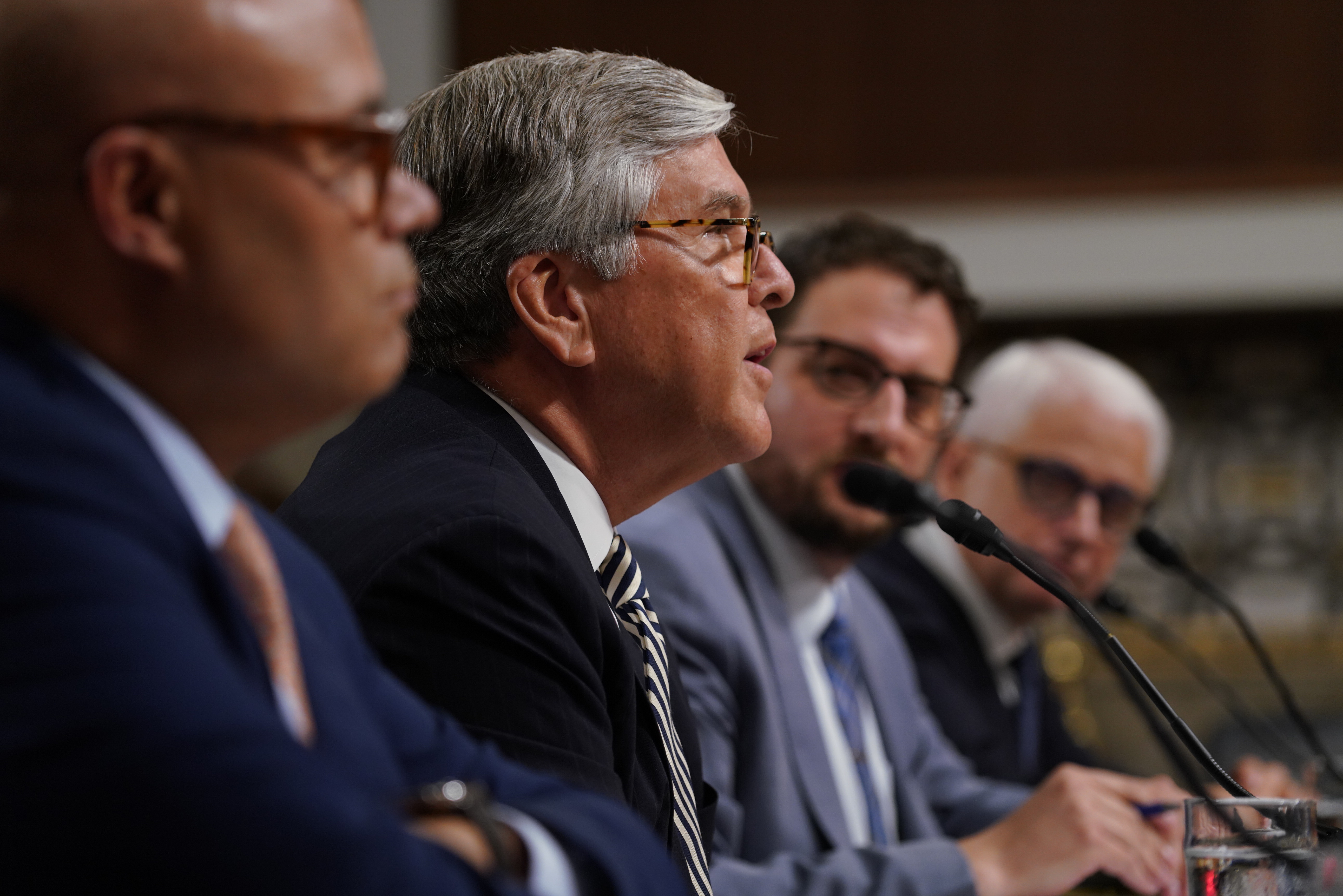Hill Shines New Light on STELAR
The smarter way to stay on top of the multichannel video marketplace. Sign up below.
You are now subscribed
Your newsletter sign-up was successful
WASHINGTON — Lawmakers and association stars were aligning for another run at the STELAR compulsory copyright license bill, the battle over which has divided broadcasters and cable operators for decades.

Congress must revisit the copyright legislation every five years as key provisions come up for sunset or renewal. Cable’s chances of STELAR renewal, which it has pushed, were looking pretty good at press time, though broadcasters were trying to divide and conquer by suggesting good-faith provisions could be de-tethered from the law even as the compulsory license is retained.
STELAR is the latest version of legislation, first passed in 1988, that allows satellite-TV providers to import distant network signals into local markets. The law also requires multichannel video programming distributors, including cable operators, and broadcasters to bargain in good faith in negotiations over retransmission consent for TV stations. The bargaining provisions are what has made the license renewal a flashpoint in the carriage battleground.
Broadcasters and cable operators both want this periodic fight to go away, but by very different routes. Stations want the license eliminated, while MSOs, joined by fair-use supporters often critical of cable, want it to be permanently renewed.
“Given the importance of STELAR to maintaining competition and protecting viewers, Congress should reauthorize it permanently,” Public Knowledge senior counsel John Bergmayer said. “There is no reason for Congress to create artificial crises every few years to ensure that satellite remains a competitor.”
Adding New Meanings to ‘Bad Faith’
Cable operators want to use STELAR (which has had different names at different times) to get rid of retrans blackouts, or at least to stop TV stations from pulling signals during marquee events and forbid bundled deals involving multiple stations or TV signals and other programming. Those conditions should be considered bad-faith bargaining, operators say.
The smarter way to stay on top of the multichannel video marketplace. Sign up below.
“Broadcasters thumb their noses at Congress and the FCC while jacking up rates on consumers, then brag about it on their quarterly earnings calls,” said Trent Duffy of the American Television Alliance, which includes small and midsized cable operators.
Another sore point with cable operators is when TV stations program a digital subchannel as a network affiliate, allowing that station to control multiple affiliates in a market without running afoul of FCC local ownership limits that apply only to primary signals.
Addressing the subchannel issue would entail Congress beefing up the bargaining rules, since the FCC, under both Democrats and Republicans, has not gone there.
Cable operators, which generally like the government to stay out of the market, argue that tightening the rules is necessary to better level off a playing field that Congress tilted toward broadcasters by imposing the retransmission-consent and must-carry regime in the 1992 Cable Act.
The issue got plenty of new attention as the House and Senate launched hearings into STELAR in particular and the state of the video marketplace in general.
While Republicans signaled it might be OK for the law to go away, they were not of one mind.
The top Democrat on the House Energy & Commerce Committee, Mike Doyle of Pennsylvania, set a cable-friendly tone at a June 4 hearing, saying that while STELAR was not perfect, its sunset would create a “crisis” of lost viewership and invite bad behavior and consumer harm.
While cable operators told Congress that escalating retrans fees were hitting consumers hard — both by inflating their cable bills and siphoning off money that would otherwise go to building out rural broadband — broadcasters said that with big tech eating into their local ads, retrans was crucial to supporting all that local, and even life-saving, content legislators agreed was must-have video.
Given the competition for local ads from online platforms, National Association of Broadcasters president Gordon Smith said at a June 5 Senate Commerce Committee hearing that free, over-the-air stations increasingly need retransmission fees. He said the fees are fair value to support stations’ investment in must-have programming — local news, weather and emergency information that legislators conceded are, indeed, must-have.
ACA Connects president and CEO Matt Polka saw it a lot differently. He told Multichannel News, as he has been telling the Hill, that huge broadcast conglomerates would only have a more outsized influence on rising cable bills via rising retrans fees if the law went away and Congress did not put more, not fewer, good faith conditions on negotiations.
NCTA-The Internet & Television Association president Michael Powell said STELAR was all about retaining the FCC as a backstop to retrans bargaining.
In any event, Doyle signaled STELAR was not likely to be relegated to the dustbin of history just yet. He said at the House hearing that though he agreed the license and bargaining components were hardly a perfect solution, allowing them to sunset would result in a “crisis,” of lost viewership and invite bad behavior and consumer harm.
Like cable operators, legislators were remiss to let the “good-faith” directive lapse.
The STELAR license and good-faith bargaining provisions have to either stay or go by the end of the year (or close to it), so Congress has a deadline to drive those key issues to some kind of resolution.
Contributing editor John Eggerton has been an editor and/or writer on media regulation, legislation and policy for over four decades, including covering the FCC, FTC, Congress, the major media trade associations, and the federal courts. In addition to Multichannel News and Broadcasting + Cable, his work has appeared in Radio World, TV Technology, TV Fax, This Week in Consumer Electronics, Variety and the Encyclopedia Britannica.

